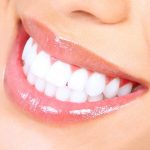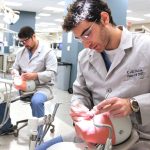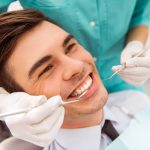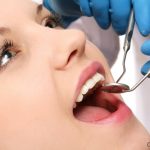Table of Contents
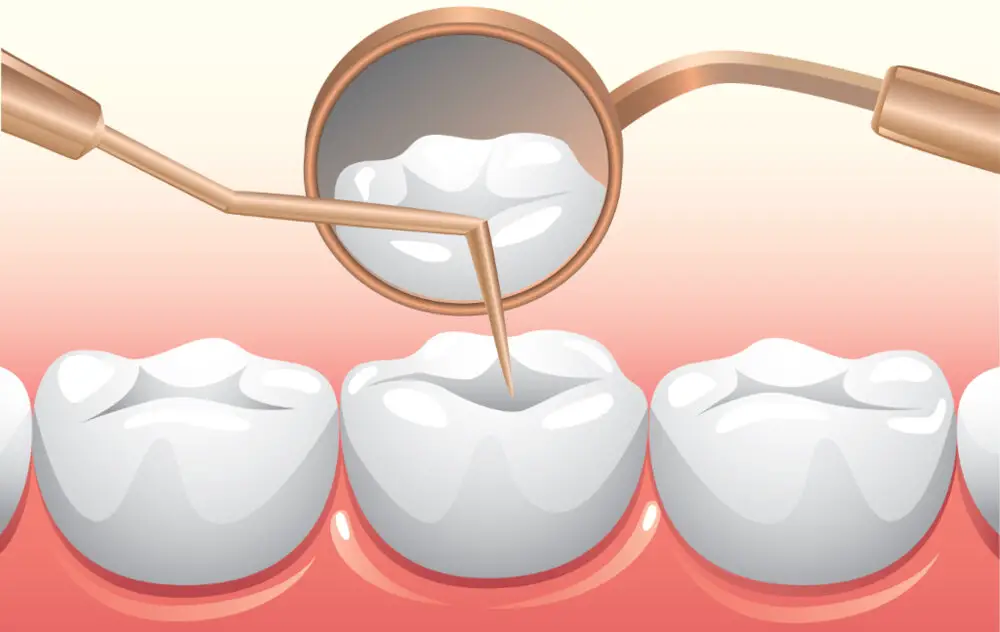
Wisdom teeth removal is a common dental procedure that can cause discomfort and pain for many patients. One of the most important aspects of recovery after wisdom tooth extraction is proper nutrition. Eating the right foods can help speed up the healing process, prevent infection, and reduce pain and swelling. However, many patients find it challenging to know what to eat and avoid during the first two weeks after the procedure. In this ultimate guide, we will provide you with all the information you need to make the best food choices during this critical recovery period. During the first two weeks after wisdom teeth removal, it is essential to maintain a soft food diet that is easy to chew and swallow. This diet should consist of foods that are rich in nutrients, vitamins, and minerals that can help promote healing and reduce inflammation. In this guide, we will provide you with a comprehensive list of foods to eat and avoid during this period, as well as tips on how to prepare and consume these foods for optimal results. By following our guide, you can ensure a speedy recovery and get back to your normal routine as quickly as possible.
Wisdom teeth removal is a common dental procedure that involves taking out the third molars located at the back of the mouth. This procedure is usually necessary when the teeth are impacted or cause discomfort due to overcrowding. It is important to follow the proper aftercare instructions, including proper nutrition during the recovery period. After wisdom teeth removal, the mouth will be sensitive and may require a soft or liquid diet for the first few days. It is important to avoid hard, crunchy, or spicy foods that can irritate the surgical site. Instead, opt for nutritious foods such as soups, smoothies, and protein-rich foods that can help with healing and prevent infection. Proper nutrition during recovery is crucial to ensure a smooth and speedy recovery.
The First Day
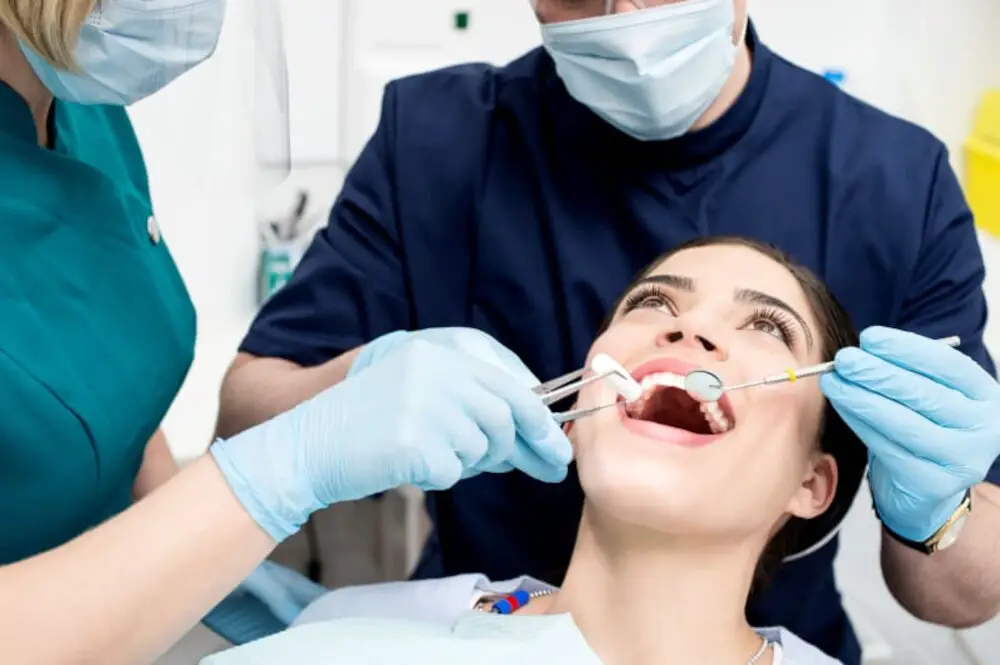
The first day after wisdom teeth removal can be quite daunting. It’s normal to feel groggy and disoriented after the anesthesia wears off, and you may experience some pain and swelling in your mouth. However, it’s essential to stick to a soft food diet during the first 24 hours to promote healing and avoid complications. You should drink plenty of water and avoid hot liquids, carbonated drinks, and alcohol. Instead, opt for cold, soothing drinks like iced tea, apple juice, or smoothies. You can also eat foods such as ice cream, yogurt, and mashed potatoes. It’s best to avoid any spicy or acidic foods, as they can irritate your gums and cause discomfort. Overall, it’s crucial to take it easy on your first day and avoid any strenuous activity that can disrupt the healing process. The first day after wisdom teeth removal is also an excellent opportunity to take stock of your recovery plan. Make sure you have all the necessary supplies, such as gauze, pain medication, and ice packs, and keep them within reach. You may also want to make sure that someone can be with you during this time to assist you if needed, as you may still be feeling the effects of anesthesia. Additionally, it’s a good idea to schedule a follow-up appointment with your dentist or oral surgeon to monitor your progress and ensure that everything is healing correctly. With a little patience and self-care, you can make it through the first day with ease and set yourself up for a successful recovery.
After undergoing surgery, it is crucial to consume foods that are easy to chew, swallow and digest to ensure proper healing and recovery. Soft foods such as yogurt, mashed potatoes, soup, and smoothies are great options as they provide essential nutrients without causing discomfort or irritation to the surgical site. Additionally, incorporating protein-rich foods such as eggs, tofu, and lean meats can aid in tissue repair and promote faster healing. It is also important to avoid hard, crunchy, or spicy foods as they can cause pain or damage to the surgical site. Remember to stay hydrated by drinking plenty of water and avoid using straws as the suction can cause bleeding or dry socket. Following a balanced and nutritious diet will not only facilitate a speedy recovery but also promote overall health and wellbeing.
After a wisdom teeth removal, pain and swelling are expected. To manage this discomfort, it is recommended to take pain medication as prescribed by your dentist or oral surgeon. Applying ice packs to the affected area for 20 minutes at a time can also help reduce swelling. Additionally, avoiding hot and spicy foods as well as alcohol and tobacco can help prevent further irritation and discomfort. Drinking plenty of fluids and sticking to soft, easy-to-chew foods can also aid in the healing process. With proper pain and swelling management, the recovery process after a wisdom teeth removal can be much smoother and more comfortable.
Days 27

Days 27 after wisdom teeth removal mark the end of the recovery process for most patients. At this point, the sockets have healed, and the risk of dry socket or infection is significantly reduced. However, it is still essential to maintain good oral hygiene and avoid hard or crunchy foods that could irritate the area. Some patients may experience lingering discomfort or swelling, but these symptoms should dissipate over time. During the first few weeks after wisdom teeth removal, patients should follow a soft food diet to avoid damaging the delicate healing process. Foods such as mashed potatoes, scrambled eggs, and smoothies are excellent choices as they are easy to eat and provide essential nutrients. It is also important to stay hydrated by drinking plenty of water and avoiding alcohol or caffeine, which can dehydrate the body. By following these guidelines and taking care of their oral health, patients can ensure a smooth and successful recovery after wisdom teeth removal.
After wisdom teeth removal, it is crucial to follow a soft food diet to ensure a speedy recovery. Some soft food options to ease back into eating include mashed potatoes, scrambled eggs, smoothies, and soup. These foods are easy to consume and provide the necessary nutrients for healing. It is important to avoid hard, crunchy, or sticky foods, as they can irritate the surgical site and increase the risk of infection. Additionally, it is essential to stay hydrated by drinking plenty of water and avoiding carbonated beverages. By following a soft food diet and proper post-operative care, patients can ensure a smooth and successful recovery after wisdom teeth removal.
After wisdom teeth removal, it is crucial to avoid certain foods that may hinder the healing process or cause discomfort. Firstly, hard and crunchy foods like nuts, chips or popcorn should be avoided as they can irritate the surgical site and dislodge the blood clot, leading to a painful condition called dry socket. Secondly, spicy or acidic foods like tomato sauce, citrus fruits, or hot peppers should be avoided as they can cause a burning sensation and delay healing. Thirdly, carbonated drinks, alcohol, and smoking should be avoided as they can also delay healing and increase the risk of infection. Lastly, sticky and chewy foods like caramel or gum should be avoided as they can stick to the surgical site and cause discomfort. Opting for soft, nutrient-dense foods like smoothies, soups, and mashed potatoes can aid in the healing process and provide essential nutrients for a speedy recovery.
Days 814

Days 814 post wisdom teeth removal can bring about significant progress in the healing process. By this point, most patients will have noticed a significant reduction in swelling and pain. However, it is still important to continue taking pain medication as prescribed by your dentist or oral surgeon. During this stage, a soft food diet is still recommended, and patients can slowly begin incorporating more solid foods into their diet. Soft scrambled eggs, mashed potatoes, and cooked vegetables are good options for this stage of the healing process. It is important to avoid any crunchy or hard foods that can irritate the surgical site. Patients should also avoid using straws, as the suction can dislodge the blood clot and delay the healing process. Some patients may experience a tingling or numbing sensation in their lips or tongue due to nerve damage during the surgery. This sensation should subside over time, but it is important to discuss any concerns with your dentist or oral surgeon. With proper care and attention, most patients will be able to resume their normal diet within a few weeks of their wisdom teeth removal.
Gradually reintroducing harder foods is an essential step in the recovery process after wisdom teeth removal. During the first few days after the procedure, it’s recommended to stick to soft and cold foods to allow the surgical site to heal. But as the healing progresses, it’s important to start incorporating harder foods back into your diet. However, it’s crucial to do this gradually to avoid damaging the surgical site or causing pain. Start with foods that require minimal chewing, such as cooked vegetables or soft pasta, and slowly work your way up to harder and crunchier foods like apples or nuts. Remember to listen to your body and stop if you experience any discomfort or pain.
After wisdom teeth removal, it is important to consume nutritious foods that can aid in the healing process. Soft foods such as mashed potatoes, scrambled eggs, and yogurt are good options as they are easy to chew and swallow. Additionally, foods rich in vitamins and minerals such as leafy greens, fruits, and lean proteins can help boost the immune system and promote healing. Avoiding sugary and acidic foods is also recommended as they can irritate the surgical site and slow down the healing process. Opting for nutritious options can not only aid in healing but also provide the necessary nutrients to maintain overall health during the recovery period.
Tips for Successful Eating

Eating after wisdom teeth extraction can be a daunting task. However, with the right tips and techniques, you can make the process smoother and more comfortable. Firstly, it is essential to start with soft foods that require minimal chewing, such as smoothies, soup, and mashed potatoes. This will help to avoid any strain on the surgical site and reduce the risk of bleeding. It is also important to avoid hot or spicy foods, as they can irritate the wound and cause discomfort. Another crucial tip for successful eating after wisdom teeth removal is to take small bites and chew slowly. This will help to prevent any damage to the surgical site and reduce any discomfort. Additionally, it is essential to avoid using straws or smoking, as the suction can dislodge the blood clot and increase the risk of infection. By following these tips, you can ensure a successful and comfortable recovery period after wisdom teeth removal.
After wisdom teeth removal, eating can be a daunting task. However, there are several strategies that can help you avoid discomfort and make the process smoother. One of the most important things to keep in mind is to avoid hard, crunchy or chewy foods as they can irritate the surgical site and delay healing. Instead, opt for soft and easy-to-eat foods such as mashed potatoes, soups, smoothies, and yogurt. It’s also crucial to avoid using straws, as the sucking motion can dislodge the blood clot and cause a painful condition known as dry socket. Additionally, try to keep your head elevated while eating and avoid lying down immediately after meals to reduce the risk of food particles getting trapped in the surgical site. By following these strategies, you can ensure a comfortable and speedy recovery after your wisdom teeth removal.
Hydration is crucial for recovery after wisdom teeth removal. It is recommended to drink plenty of water and avoid alcohol, caffeine, and sugary drinks as they can lead to dehydration and delay the healing process. Water helps to keep the mouth clean and moist, which can reduce the risk of infection and promote faster healing. Additionally, drinking water can help to alleviate some of the discomfort and swelling associated with the procedure. It is important to sip water slowly and avoid using a straw or spitting to prevent dislodging the blood clot that forms in the socket after surgery. Staying hydrated can also help to prevent constipation, a common side effect of pain medication.
If you have recently had your wisdom teeth removed, it is important to take extra care of your diet for the first two weeks to promote healing and prevent complications. During this time, it is recommended to consume soft foods that are easy to chew and swallow, such as mashed potatoes, soups, and smoothies. Avoid crunchy, chewy, or sticky foods that may irritate the surgical site or dislodge the blood clot, which can lead to a painful condition called dry socket. It is also essential to stay hydrated and avoid using straws, as the suction can also dislodge the blood clot. Additionally, it is important to avoid alcohol, smoking, and spicy foods, as they may delay healing and increase the risk of infection. By following these guidelines, you can ensure a smooth and speedy recovery process after your wisdom teeth removal.
Prioritizing nutrition during wisdom teeth recovery is essential for a speedy and healthy recovery. It’s important to consume nutrient-rich foods like fruits, vegetables, lean protein, and whole grains to help your body heal and reduce inflammation. Soft foods like mashed potatoes, smoothies, and soup can provide the necessary nutrients while being gentle on your healing gums. Avoiding sugary and processed foods can also reduce the risk of infection and promote healing. Remember, taking care of your body during recovery will not only help you heal faster but also ensure long-term oral health. So, make sure to prioritize nutrition during your wisdom teeth recovery and give your body the fuel it needs to heal effectively.
Conclusion

In conclusion, undergoing wisdom teeth removal can be a daunting experience, but proper post-operative care can make all the difference. Paying close attention to what you eat during the first two weeks can help ensure a smooth recovery without any complications. Opting for soft, nutrient-dense foods and avoiding hard, crunchy, or chewy items can help to prevent pain, swelling, and infection. Remember to stay hydrated, take your medication as prescribed, and listen to your body’s cues. With patience and proper care, you can resume your normal diet and activities in no time.




